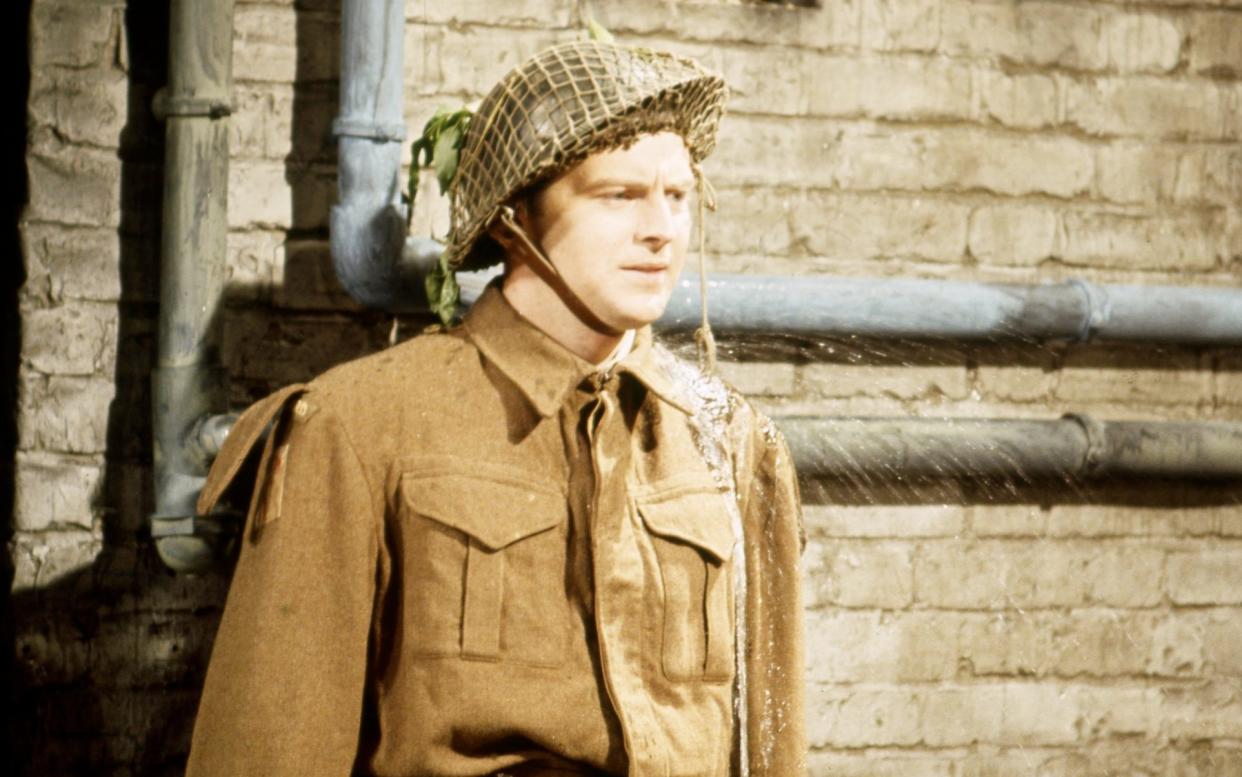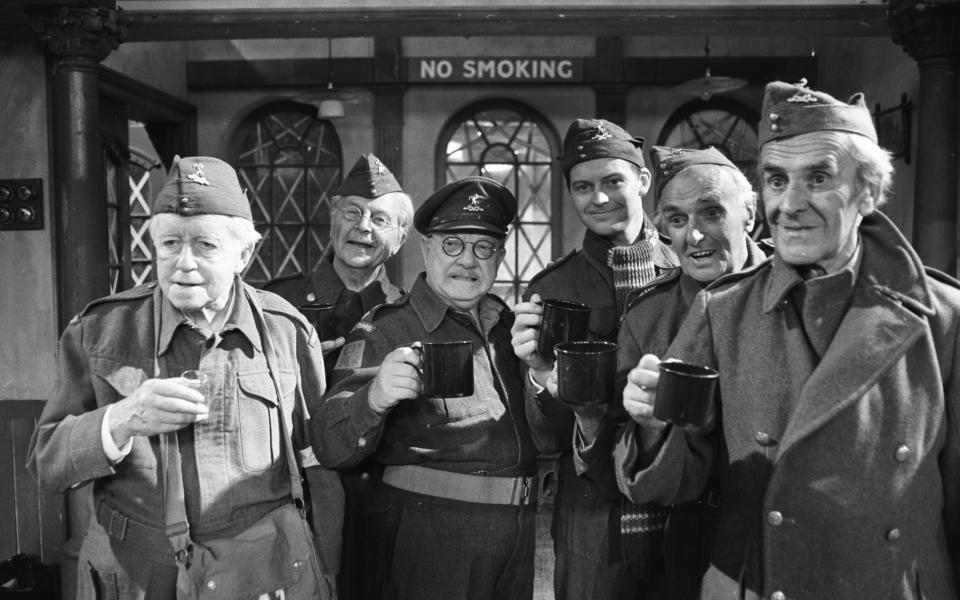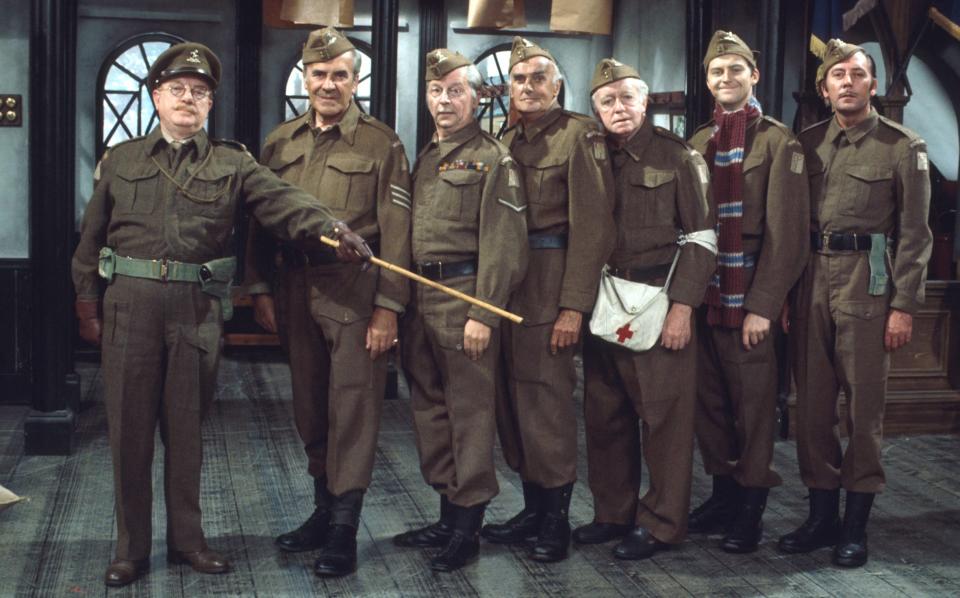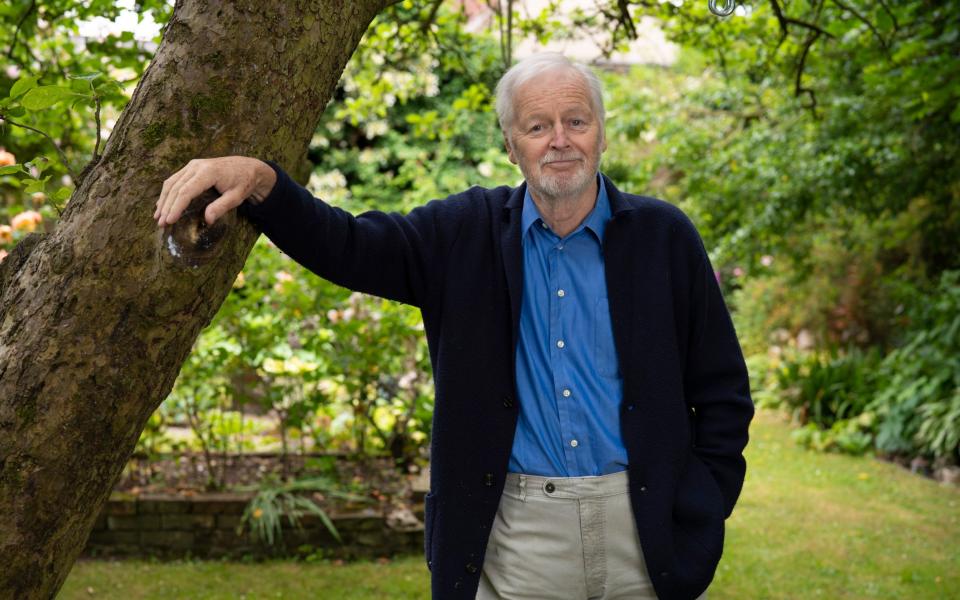The pathos of Private Pike, an old soldier who represented the best of British

- Oops!Something went wrong.Please try again later.
- Oops!Something went wrong.Please try again later.
The obituary pages often pay tribute to the last men and women who made a contribution to the war effort between 1939 and 1945. Those heroes of yore must now budge up and make room for that least military of veterans: Private Pike of Dad’s Army.
Ian Lavender, who played Pike, was the last surviving member of the Home Guard who dauntlessly defended British shores against German invasion in Walmington-on-Sea. In 1968 he was only 20 when, fresh-faced, he was cast in a new BBC sitcom, the juvenile in a troupe of codgers, two of whom had been born in the 19th century (John Laurie and Arnold Ridley). Most had died by the early 1980s, only Clive Dunn surviving to 2012. By dint of being the youngest member, Lavender was left to carry on talking about the show as its surviving repository of memories. He accepted with grace the reality that Dad’s Army was the only thing anyone ever wanted to ask him about. Including me when I met him in 2006.
“How can you be upset that people still want to talk about it?” he said. “Go up to a young actor and say, ‘Here’s a script, it will run over 10 years, so it’ll keep you nicely employed, lots to do in between, there’ll be repeat fees through the rest of your life, it’s going to create work for you but stop other work.’ Show me the actor who says, ‘I don’t want to know about that, I don’t want to be in a success’.”
Private Pike was a unique position. While many who watched Dad’s Army could remember the war, younger viewers – the ones who were supposedly liberated by the Sixties revolution – had only one character anywhere near their own age to identify with. And he was a far from impressive specimen. The mollycoddled bank clerk was known immortally to Captain Mainwaring, his pompous bank manager, as “Stupid boy”. With his weak chest he had evaded conscription, marooning him far from the front lines in North Africa or Normandy among men who were too old to take part in the First World War, let alone the Second.

Through Pike, a gang show about class and age became something else too. There was comedy but also pathos in Pike’s unrelenting naivety, which initially was also Lavender’s. “I nearly caused a strike in the first series by moving furniture on the set,” he recalled. “I thought I was being helpful.” Wet behind the ears, Pike had no understanding that his over-protective mother was carrying on with Sergeant Wilson, though he never stopped gnawing at the conundrum.
“By the time we finish supper,” he would puzzle, “it’s always so late, you never leave our house until after I’ve gone to bed and then you’re back early for breakfast before I’m awake. But what I can’t understand is that I never hear you leave at night and I never hear you come back in.”
“Well I let myself in and out very quietly,” purrs Wilson.
“You don’t do anything else very quietly!”
Many of the older cast members had done serious and reputable work by the time they were cast in Dad’s Army. Lavender began with noble aims to tear up the stage. “When I was a student sitting up in those slips seats at the Old Vic to see Olivier in Love for Love and Othello, it was the ambition of everybody to work at the National. We all wanted to be stars, we knew in our heart of hearts Olivier had to die at some point. I’d come out of the Bristol Old Vic School play the ‘juve’ leads – Florizel and Romeo. Dad’s Army was going to be six tellies, a fun way of spending the summer.”

The show’s success put a stop to his dream of playing Hamlet. Instead he learned a different sort of craft from Arthur Lowe. “Arthur was a pompous little man with all that that entails,” he recalled. “ But he knew he was as well and he played at it, and then eventually he’d let you in on the joke. Towards the end of that first series he took me on one side and said, ‘Don’t worry if there aren’t a lot of lines. They’ll come. Meanwhile, get yourself a funny costume and stand near me’.”
Lavender took to wearing a claret and blue scarf, in homage to his home club, Aston Villa, and David Croft and Jimmy Perry started writing about it and the mother’s boy wrapped inside it. Pike would be the butt of one of the most indelible gags in all British sitcom. As a punchline, “Don’t tell him, Pike” worked because by the sixth series Pike had been drawn in such beautiful detail that every contour of his character was known: his stupidity, his petulance, his cowardice, but also his vulnerability. The joke works so well because it was quite clear the Germans would make mincemeat of Pike in particular.
Time would go to work on Lavender. The hair went as white as all his old colleagues, the midriff grew distended. Beyond Dad’s Army, the work came in: The Glums, 240 episodes of EastEnders, even serious musical theatre in the shape of Into the Woods and Caroline, or Change. It was in sentimental tribute to Dad’s Army that Victoria Wood gave him a cameo in her final drama, That Day We Sang. He took the advice of the jobbing comic actor Roy Kinnear. “His philosophy was ‘Take the next job’. Didn’t matter what it was. As a result of Dad’s Army there’s always been one. Nearly always.”

It was the best of British television, and it feels both poignant and significant that its last star has now departed. Lavender himself got very used to saying goodbye to his colleagues.
“My friends were 50 and 40 years older than me,” he told me. “To get so close to people and lose them quickly was odd. There was obviously sadness but I couldn’t feel that I had been cheated. I remember one night at dinner John Laurie said, ‘Look at us round this table!’ And he went round the whole cast and described us. He got every one of us.”
“Arthur Lowe, number two tenor. John Le Mesurier, dilettante. Jimmy Beck, a leading man from a dubious rep in York. Arnold Ridley, failed playwright, failed film producer, failed director, failed actor. Ian Lavender, wet behind the ears, not done nothing. Clive Dunn, spent his life since his first day in prisoner-of-war camp playing an old man and has no need of the wig now. And here’s me who’s played every part in Shakespeare apart from Henry VIII and that’s only because I was thin. I’ve become famous for doing this crap!”
They all did, and none was more grateful for it than Dad’s Army’s lowliest old soldier.

